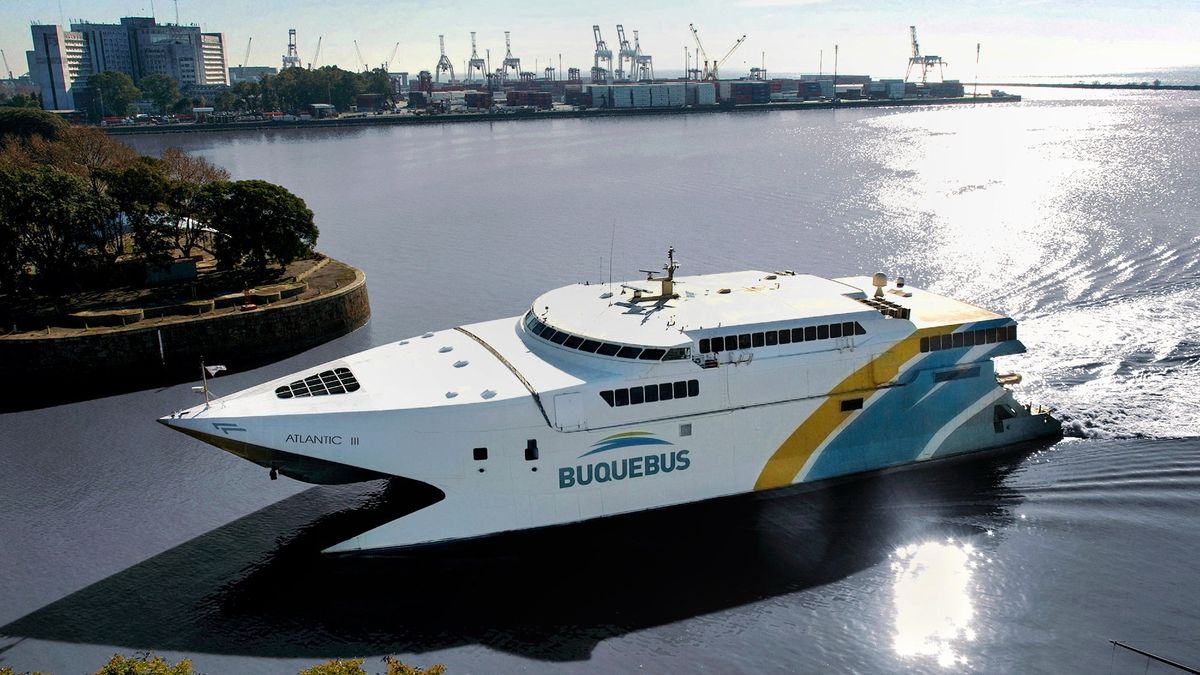The collection of the new river rate imposed by the Executive Branch at the beginning of this year continues to generate controversy, this time, on the part of the company Buquebus who requested information to implement a better implementation of the same, since they claim that it generates administrative problems.
In mid-February, the Executive power signed a decree imposing a new rate of 2.10 dollars more VAT for those passengers entering or leaving the country by air maritime or river, as a “security service” to effectively implement the border control system.
The Executive’s decision generated rejection from the ship companies, who claim that it affects not only the cruise season, but also the trips that link Buenos Aires with Uruguay through the Río de la Plata. Thus, Buquebus already has several legal resources to annul what they consider a compulsory tax that, in their opinion, increases the price of tickets.
“We have three challenges. All three refer to legal norms, but beyond that they also refer to major political agreements, reasonable within a liberal democracy,” he explained earlier this year. Daniel Ochslegal representative of Buquebus to Ambit.
The company has thus stated that it has requested more information from the authorities in order to correctly carry out the collection, as it has raised several administrative and accounting questions, as the application instructions are not entirely clear to Buquebus.
The position of Buquebus
Specifically, the company of the Argentine-Uruguayan businessman Juan Carlos Lopez Menaunderstands that the government of Luis Lacalle Pou It affected the principle of legality by creating an obligation by decree and not by law as established in article 10 of the Constitution, in addition to not respecting the principle of equality of public burdens, since all immigration checkpoints in the country will be financed with the river tourism tax.
“The only way to support this decision is to say that river transport companies have a greater capacity to contribute, but here it is the other way around,” explained Ochs and gave a clear example: “the person who flies business class to Spain does not pay it, but the person who enters through the port of Colonia does, despite the fact that both must undergo immigration control.”
Another of the points that Buquebus questions is the one that Ochs described as “shocking”: the Ministry of Interior He admitted that he had not evaluated the cost of the new immigration control system. “The State allows a company to charge for it, but it does not know how much it costs,” he said.
The new rate on river tourism, which for tax experts consists of a tax, establishes that “international maritime or river passenger transport companies that operate in any of the ports will be responsible for collecting the tax.” Price per Security Service to each of its passengers.”
For cruise passengers entering or leaving Uruguay The collection and retention of the fee will be the responsibility of the shipping agency to which the vessel is consigned. The monthly collection of the fee will be retained by them and then “paid at the end of the month to the provider of the awarded border control system.”
Buquebus, which had already challenged the call for tenders and now made a second appeal against the award itself, believes that the biggest problem is validating an irregular administrative procedure. “The State gives you a partner, because it forces you to pay the company (that carries out the control) directly,” explained the legal representative of the company.
“In a healthy democracy, the parties involved must be consulted,” concluded Orchs, who explained that the government has not yet responded to the challenge to the tender, even though the legal deadline to do so is about to expire.
The keys to the tax
The decree establishes that “international maritime or river passenger transport companies that operate in any of the ports will be responsible for collecting the Price per Security Service to each of its passengers.”
The amount will be collected when the tickets are issued and the companies will become withholding agents of the amounts. In the case of passengers of cruise ships When entering or leaving the country, the collection and retention of the fee will be the responsibility of the maritime agency to which the vessel is consigned.
The monthly collection of the rate carried out by the corresponding maritime and river agencies will be retained by them and then “paid at the end of the month to the provider of the border control system awarded within the framework of the aforementioned International Public Tender No. 19/2022.”
In turn, the National Directorate of Migration The Commission was authorized to charge passengers up to a maximum of 3% plus VAT, “for the purposes of covering the administrative costs of companies acting as withholding agents, and may authorize them to collect this amount directly from them.” All these obligations will come into effect once the border control system is in operation.
Source: Ambito




